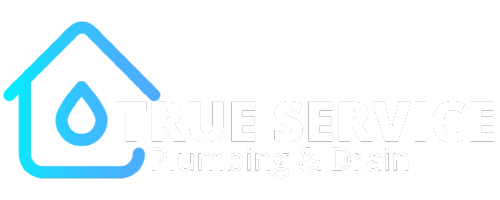Can you flush cat poop down your toilet? As a homeowner, you might have wondered if this disposal method is safe and practical.
Many pet owners prefer convenience, thinking that flushing cat poop seems like a quick, mess-free solution.
However, it’s crucial to understand that this seemingly harmless practice could potentially harm your plumbing system, public health, and even the environment.
In this comprehensive guide, we’ll break down the facts clearly, so you can confidently protect your home, plumbing, and community.
What Happens After You Flush Cat Poop?
When you flush cat poop, it enters the same wastewater system designed for human waste.
While your home’s plumbing may initially handle it, problems typically arise down the line.
Unlike human waste, cat feces contain parasites and bacteria, such as Toxoplasma gondii, which wastewater treatment facilities aren’t always equipped to handle effectively.
Over time, these pathogens could end up in waterways, posing health risks to both wildlife and humans.
Moreover, cat litter—even types labeled as flushable—can accumulate and eventually clog pipes, causing costly plumbing repairs.
Why Experts Advise Against Flushing Cat Poop
Professional plumbers, veterinarians, and wastewater management authorities strongly advise against flushing cat poop.
Their concerns center around:
- Plumbing issues: Cat litter (even flushable types) expands when wet, increasing blockage risks.
- Health hazards: Cat feces contain harmful pathogens like Toxoplasmosis, dangerous for pregnant women, infants, and individuals with weakened immune systems.
- Environmental damage: Improperly treated wastewater contaminates lakes and rivers, harming wildlife and ecosystems.
Flushable vs. Non-Flushable Cat Litter
Understanding different types of cat litter is vital:
Flushable Cat Litter
- Usually made from biodegradable materials like corn or wheat.
- Marketed as safe for flushing but often causes plumbing issues.
Non-Flushable Cat Litter
- Typically made from clay, silica, or crystal.
- Clearly labeled as non-flushable due to their high risk of clogging pipes.
In general, even litters labeled flushable may pose problems.
Always consult a professional plumber like True Service Plumbing for guidance tailored to your home.
Are There Any Scenarios When Flushing Cat Poop is Safe?
You might wonder if there’s ever a safe time to flush cat poop.
The short answer: it’s rarely, if ever, advisable.
Exceptions are few and involve strict conditions, such as:
- Using genuinely flushable litter in minimal amounts.
- Ensuring your plumbing system is modern and robust.
- Regularly consulting with a plumbing professional.
Even then, risks remain, making alternative disposal methods a smarter choice.
Where Does Cat Poop End Up After Flushing?
Flushed cat poop travels to municipal sewage treatment plants.
Although these facilities are designed to process human waste effectively, they aren’t specifically equipped to handle certain parasites found in cat feces.
Consequently, pathogens might pass through treatment processes and contaminate local water bodies.
How Flushing Cat Poop Impacts Your Plumbing
From a homeowner’s perspective, flushing cat poop or litter introduces substantial risks:
- Pipe blockages: Wet cat litter forms clumps, obstructing pipes.
- Costly repairs: Recurring blockages lead to expensive plumbing interventions.
- Sewage backups: Blocked pipes can cause backups, creating unsanitary and hazardous living conditions.
Addressing these issues can be time-consuming and costly, underscoring the importance of preventive care.
Environmental and Public Health Risks
Flushing cat poop isn’t just harmful to plumbing—it also poses environmental and public health threats:
- Toxoplasmosis contamination: Parasites found in cat feces can infect water supplies, endangering wildlife and humans.
- Ecological disruption: Contaminated water affects aquatic life, damaging delicate ecosystems.
Protecting our environment means considering safer disposal alternatives.
Safe Alternatives to Flushing Cat Poop
Thankfully, there are safe and effective alternatives for disposing of cat poop:
- Bagging and trashing: Dispose of cat waste in biodegradable bags placed in regular household garbage.
- Pet waste composting: Special composters designed specifically for pet waste can safely break down feces without environmental harm.
- Pet waste disposal services: Some local companies specialize in pet waste removal, providing convenient and responsible disposal solutions.
Frequently Asked Questions (FAQs)
Can regular cat litter clog pipes?
Absolutely. Regular cat litter absorbs water and expands, significantly increasing the risk of pipe blockages.
Are flushable litters genuinely safe?
Not necessarily. Even flushable litters can cause plumbing issues and environmental problems. Consult your plumber before using them.
What should I do if I’ve been flushing cat litter?
Stop immediately and monitor your plumbing for signs of blockage. Consider scheduling a professional inspection to prevent severe issues.
Conclusion
Flushing cat poop down your toilet might seem convenient, but it poses substantial risks to your plumbing, environment, and health.
By adopting safer disposal methods, homeowners can prevent expensive repairs, protect their community, and maintain a healthier living environment.
Professional Plumbing Services with True Service Plumbing
When it comes to plumbing services in Toronto and the GTA, True Service Plumbing stands as your reliable choice for both residential and commercial plumbing needs.
Our licensed professionals are equipped to manage and solve plumbing challenges efficiently, from clogged pipes to comprehensive plumbing assessments.
Facing plumbing concerns related to pet waste disposal?
Let True Service Plumbing assist you in diagnosing and resolving your plumbing problems promptly and professionally.
Don’t let plumbing issues disrupt your comfort.
Contact True Service Plumbing today—we’re committed to keeping your plumbing worry-free!


